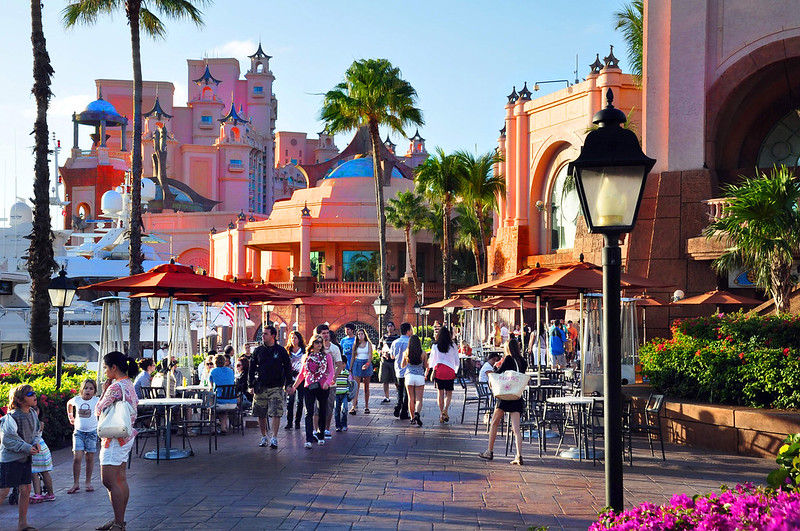Human Trafficking in the Bahamas
 Human trafficking in the Bahamas involves the illegal hiring, transportation, housing, or use of people for reasons of forced labor, sexual exploitation or other types of exploitation. Both residents and tourists in the Bahamas face exploitation, while U.S. citizens also suffer harm overseas. Based on research, the bulk of migrant workers on the island come from the Dominican Republic, Haiti and Jamaica. Job advertisements lure them to the country, but once they arrive, they often fall prey to human traffickers. Most often, victim exploitation occurs in businesses that need low-skilled work, such as domestic slavery, sex trafficking and other related fields.
Human trafficking in the Bahamas involves the illegal hiring, transportation, housing, or use of people for reasons of forced labor, sexual exploitation or other types of exploitation. Both residents and tourists in the Bahamas face exploitation, while U.S. citizens also suffer harm overseas. Based on research, the bulk of migrant workers on the island come from the Dominican Republic, Haiti and Jamaica. Job advertisements lure them to the country, but once they arrive, they often fall prey to human traffickers. Most often, victim exploitation occurs in businesses that need low-skilled work, such as domestic slavery, sex trafficking and other related fields.
Who Is Trafficked
The groups most vulnerable to human trafficking appear to be those displaced within the region, women, children of migrants and irregular migrants themselves. About 2.4 million people are victims of this dehumanizing and shameful crime at any given moment, with women making up 55–60% of all victims identified worldwide. When combined, women and girls make up around 75% of the trafficked population. Among all victims found worldwide, minors make up about 27%. The traffickers are mostly male adults who live in the nation where they conduct their business.
The U.S. Department of State identified eight primary categories of trafficking in its 2013 United States Annual Trafficking in Persons Report. This includes trafficking connected to sex trafficking, forced labor, bonded labor, child sex trafficking, involuntary domestic servitude, unlawful recruitment and use of child soldiers.
Government Efforts
The government satisfies the requirements necessary to eliminate human trafficking in the Bahamas. This included the restitution of a victim who was returned from abroad as well as the conviction and sentencing of a trafficker. Along with continuing to support victims who were repatriated from abroad, the government also created legislation enabling victims to testify remotely, even from abroad. In addition, the government raised awareness, established new hotlines for reporting cases of human trafficking, trained new labor inspectors and high-ranking officials and solicited input from underrepresented groups on anti-human trafficking policies.
IOM Support
On August 9–10, 2023, in New Providence, the International Organization for Migration organized a two-day workshop on “identification and protection of victims of trafficking and migrants in vulnerable situations.” This was in collaboration with the Bahamas Immigration Department. More than 20 cops took part in the training, which covered important ideas and an overview of practical tools, including trauma-informed interviewing methods for better identifying and defending vulnerable migrants and victims of human trafficking.
The session aims to equip them with the skills necessary to recognize victims and know what to do afterward. Creating action plans for frontline officials to include the training material in their regular work was another task covered at the event. Even though this training focused on immigration officers stationed on the island of New Providence, the Government of The Bahamas asked IOM to follow up with further training for officers in Bimini and Grand Bahama, among other places.
Multiple agencies provide assistance involving human trafficking in the Bahamas and other nations to victims. These include the police, military, prison system, immigration and customs forces, Ministry of Health Providers, Faith-Based Organizations, Ministry of Social Services and nongovernmental organizations such as the Red Cross and the Crisis Center.
Conclusion
Human trafficking in the Bahamas is an issue that needs urgent attention and action from the government and civil society in the country. With solid legislation, improved law enforcement, increased public awareness and cooperation with international organizations, significant progress can be made in eliminating human trafficking and protecting the most vulnerable people in our society.
– AuiCha Conley
Photo: Flickr
